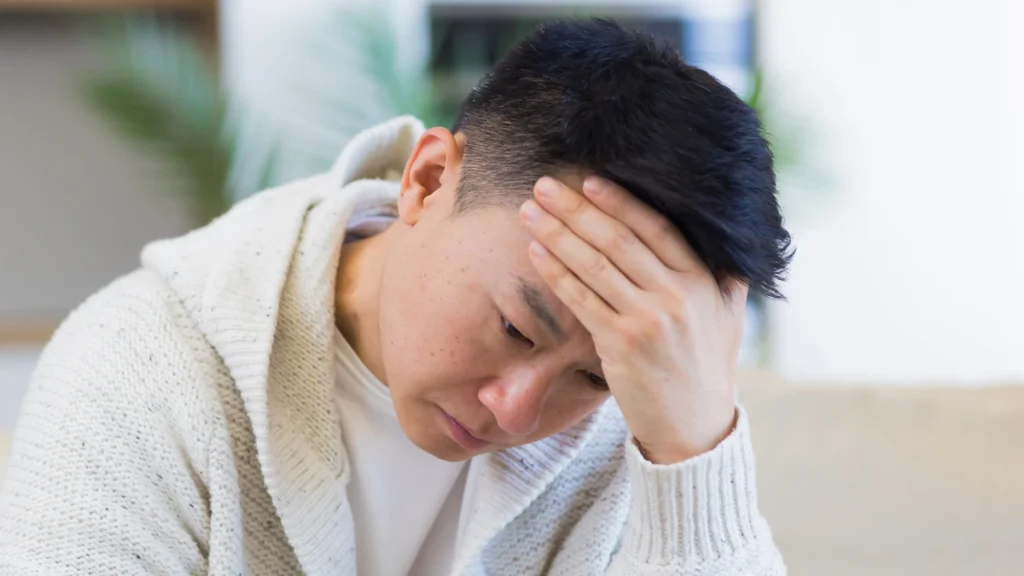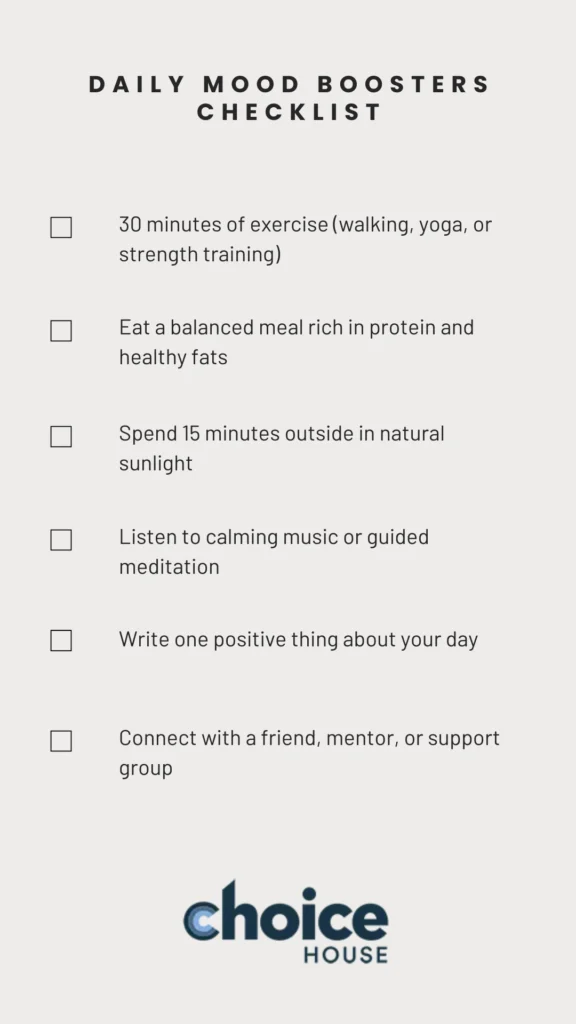Understanding Depression After Stopping Alcohol

Finding Emotional Balance in Alcohol Recovery
Quitting alcohol is supposed to make you feel better, so why do you feel worse? If you’ve recently stopped drinking and are experiencing depression, you’re not alone. Many people go through post-alcohol depression as their brain and body adjust to sobriety.
Understanding why this happens, how long it lasts, and what you can do to cope can help you navigate this challenging stage of recovery. If you’re struggling, know that support is available—you don’t have to go through this alone.
Why Does Depression Happen After Stopping Alcohol?
A. The Impact of Alcohol on Brain Chemistry
Additional Effects on Brain Chemistry
- GABA (Gamma-Aminobutyric Acid): Alcohol enhances GABA, a neurotransmitter that calms the nervous system. When you quit, your brain can become overactive, leading to anxiety, restlessness, and depression.
- Glutamate: Alcohol suppresses glutamate, which is responsible for brain stimulation. When you stop drinking, glutamate activity surges, potentially causing irritability and mood swings.
- Cortisol Increase: Alcohol reduces stress hormones short-term, but quitting can cause a temporary spike in cortisol, leading to increased feelings of stress and sadness.
Learn more about psychological dependence and how it affects mental health.
B. Post-Acute Withdrawal Syndrome (PAWS) & Depression
PAWS refers to withdrawal symptoms that persist weeks or months after quitting alcohol. Depression is one of the most common symptoms, alongside anxiety, brain fog, and sleep disturbances.
PAWS Timeline & Symptoms
- First few days: Mood swings, irritability, anxiety
- 1-4 weeks: Deep fatigue, depressive episodes, cravings
- 2-6 months: Persistent low mood, emotional instability, brain fog
Factors that influence PAWS duration:
- Drinking history (longer/heavier drinkers often experience longer PAWS)
- Genetics and mental health history
- Diet, exercise, and self-care habits during recovery
Recognizing PAWS as a temporary phase can help reduce frustration and anxiety.
C. Psychological & Emotional Factors
Emotional Processing & Trauma Recovery
- Why do emotions feel more intense after quitting alcohol
- How suppressed trauma can resurface in sobriety
- Journaling prompts to help process emotions
- How to regulate emotions without alcohol
Read more about depression and isolation in addiction recovery.
How Long Does Depression Last After Quitting Alcohol?
The duration of post-alcohol depression varies from person to person, but a general timeline looks like this:
- 0-30 Days: Withdrawal symptoms are at their peak. Fatigue, mood swings, and cravings are common.
- 1-3 Months: PAWS symptoms appear. Depression, anxiety, and sleep issues may persist.
- 3-6 Months: Brain chemistry begins to balance, and emotional stability improves.
- 6+ Months: Most people notice a significant improvement in their mood and energy.
If depression persists beyond six months, it may indicate an underlying mental health condition, such as clinical depression or anxiety, that requires professional treatment.
How to Cope with Depression After Stopping Alcohol
A. Therapy & Professional Support
- Cognitive Behavioral Therapy (CBT): Helps reframe negative thought patterns.
- Dialectical Behavior Therapy (DBT): Focuses on emotional regulation and mindfulness.
- Medication: Some individuals benefit from antidepressants to rebalance brain chemistry.
B. Natural Remedies for Alcohol Withdrawal Depression
- Exercise: Releases endorphins, which improve mood naturally.
- Nutrition: A diet rich in omega-3s, lean proteins, and whole foods supports brain health.
- Sunlight & Vitamin D: Sun exposure boosts serotonin levels.
- Cold therapy (cold showers, ice baths): Can boost dopamine and energy levels.
- Music therapy & sound healing: Helps regulate emotions and reduce stress.

Daily Mood Boosters Checklist
Taking the Next Step: Recovery & Mental Health Support
Feeling depressed after quitting alcohol is normal—but it doesn’t have to last forever. With the right tools and support, you can navigate this phase and enjoy a healthier and happier life.
🔹 Need professional guidance? Our team is here to help—Contact us now.
🔹 Not sure where to start? Speak with a recovery specialist today.

